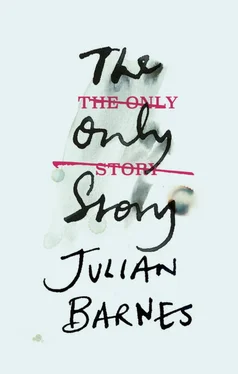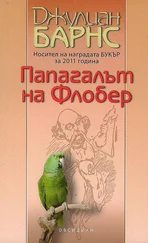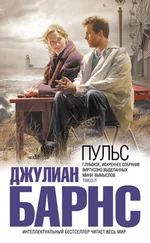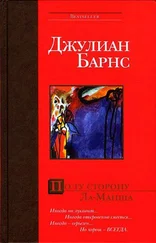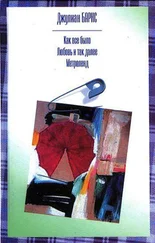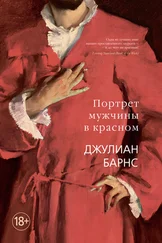But you could equally argue the opposite. If memory is biased towards pessimism, if, retrospectively, all appears blacker and bleaker than it actually was, then this might make life easier to leave behind. If, like dear old Joan, dead now these thirty years and more, you had already been to hell and back in your lifetime, then what fear of actual hell, or, more probably, eternal non-existence? There drifted into his mind words caught on the headcam of a British soldier in Afghanistan – words spoken by another soldier as he executed a wounded prisoner. ‘There you are. Shuffle off this mortal coil, you cunt,’ the man had said before pulling the trigger. Impressive to have Shakespeare half-quoted on the modern battlefield, he had thought at the time. Why had that come into his head? Perhaps Joan’s swearing had been the connection. So he considered the upside to feeling that life was just a fucking coil to be shuffled off. And men were just cunts; not women, men. There might also be an evolutionary advantage to a pessimistic memory. You wouldn’t mind making room for others in the food queue; you could see it as a social duty to wander off into the wilderness, or allow yourself to be staked out on some hillside for the greater good.
But that was theory; and here was practicality. As he saw it, one of the last tasks of his life was to remember her correctly. By which he didn’t mean: accurately, day by day, year by year, from beginning to middle to end. The end had been terrible, and far too much middle had overhung the beginning. No, what he meant was this: it was his final duty, to both of them, to remember and hold her as she had been when they were first together. To remember her back to what he still thought of as her innocence: an innocence of soul. Before such innocence became defaced. Yes, that was the word for it: a scribbling-over with the wild graffiti of booze. Also, a losing of the face, and his subsequent inability to see her. To see, to recall what she had been like before he lost her, lost sight of her, before she disappeared into that chintz sofa – ‘Look, Casey Paul, I’m doing my disappearing act!’ Lost sight of the first person – the only person – he had loved.
He had photographs, of course, and they helped. Smiling at him while leaning back against the trunk of a tree in some long-forgotten wood. Windswept on a broad empty beach with a row of shuttered huts in the distance behind her. There was even a picture of her in that tennis dress with the green trim. Photographs were useful, but somehow always confirmed the memory rather than liberating it.
He tried to get his mind to catch her on the wing. To remember her gaiety, her laughter, her subversiveness and her love for him, before everything became occluded. Her dashingness, and her gallant attempt to make happiness when the odds were always against her, always against them. Yes, this was what he was after: Susan happy, Susan optimistic, despite not having much of a clue what the future held. That was a talent, a lucky slice of her character. He himself tended to look at the future and decide from an assessment of probabilities whether optimism or pessimism was the appropriate outlook. He brought life to his temperament; she brought her temperament to life. It was more risky, of course; it brought more joy, but it left you no safety net. Still, he thought, at least they hadn’t been defeated by practicality.
There was all this; and there was also the way she accepted him simply as he was. No, better: she enjoyed him as he was. And she had confidence in him: she looked at him and didn’t doubt him; she thought he would make something of himself, and something of his life. Which in a sense he had done, though not as either of them would have foreseen.
She would say, ‘Let’s pile all the Fancy Boys into the Austin and drive to the sea.’ Or to Chichester Cathedral, or Stonehenge, or a second-hand bookshop, or a wood with a thousand-year-old tree at the centre of it. Or to a horror flick, however much they scared the daylights out of her. Or to a funfair, where they would hurtle round the dodgems, stuff themselves with candyfloss, fail to dislodge coconuts from their holders and be whirled into the air by various devices until all the puff had gone out of them. He didn’t know if he’d done all these things back then, with her; some perhaps later, some even with other people. But it was the kind of remembering he needed, and which brought her back even if she hadn’t actually been there.
No safety net. One image would always recur, whenever he thought of her. He was holding her out of the window by her wrists, unable to pull her in or let her drop, both their lives in agonising stasis until something happened. And what had happened? Well, he had tried to organize people to pile mattresses high enough to break her fall; or, he had got the fire brigade to hold a jumping sheet; or… But they were locked together at the wrist like trapeze artists: he wasn’t just holding her, she was holding him. And in the end his strength gave way, and he let her go. And though her fall was cushioned, it was still very grievous because, as she had once told him, she had heavy bones.
One entry in his notebook was, of course: ‘It is better to have loved and lost than never to have loved at all.’ That was there for a few years; then he crossed it out. Then he wrote it in again; then he crossed it out again. Now he had both entries side by side, one clear and true, the other crossed out and false.
When he thought back to life in the Village, he remembered it as being based on a simple system. For each ailment, there was a single remedy. TCP for a sore throat; Dettol for a cut; Disprin for a headache; Vicks for chestiness. And beyond that lay greater matters, but still with unitary solutions. The cure for sex is marriage; the cure for love is marriage; the cure for infidelity is divorce; the cure for unhappiness is work; the cure for extreme unhappiness is drink; the cure for death is a frail belief in the afterlife.
As an adolescent, he had longed for more complication. And life had let him discover it. At times, he felt he had had enough of life’s complications.
A few weeks after his row with Anna, he gave up his rented room and moved back to Henry Road. Somewhere, in some novel he subsequently read, he had come across the sentence: ‘He fell in love like a man committing suicide.’ It wasn’t quite like that, but there was a sense in which he had no choice. He couldn’t live with Susan; he couldn’t establish a separate life away from her; therefore he went back to live with her. Courage or cowardice? Or mere inevitability?
At least by now he was familar with the patterned patternlessness of the life he was submitting to again. His reappearance was greeted not with happiness or relief, but with a blithe lack of surprise. Because such a return was always going to happen. Because young men must be allowed their delinquencies, but shouldn’t be congratulated when they returned to a place they should never have left. He noted this discrepant reaction, but didn’t resent it; on the scale of things to be resented, it didn’t really signify.
And so – for how long? another four, five years? – they continued under the same roof, with good days and bad weeks, swallowed rage, occasional outbursts and increasing social isolation. All this no longer made him feel interesting; instead, he felt a failure and an outcast. He never got close to another woman in this time. After a year or two, Eric could no longer stand the atmosphere, and moved out. The top two rooms were rented to nurses. Well, he couldn’t get policemen.
But there was one discovery made during these years which surprised him, and which made his future life, when it came, easier. The office manager announced herself pregnant; they advertised for a stand-in, but could find no one suitable; he suggested himself for the job. It scarcely occupied the whole day, and he continued handling some legal aid cases. But he found the routine of admin, diary-keeping, mail, billings – even the banalities of maintaining the coffee machine and water cooler – gave him quiet satisfaction. In part, no doubt, because he often arrived from Henry Road in a state unfit for much more than low-level administration. But he also took unanticipated pleasure in running things. And his colleagues were straightforwardly grateful to him for making their lives easier. The contrast with Henry Road was blatant. When had Susan last thanked him for making her life less arduous than it would have been?
Читать дальше
